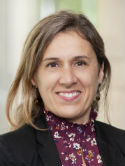2021 AAPM Equity, Diversity, and Inclusion Climate Survey executive summary Journal Article
| Authors: | Hendrickson, K. R. G.; Avery, S. M.; Castillo, R.; Cervino, L.; Cetnar, A.; Gagne, N. L.; Harris, W.; Johnson, A.; Lipford, M. E.; Octave, N.; Paradis, K. C.; Pérez-Andújar, A.; Prajapati, S.; Pollard-Larkin, J. |
| Article Title: | 2021 AAPM Equity, Diversity, and Inclusion Climate Survey executive summary |
| Abstract: | Purpose: The American Association of Physicists in Medicine (AAPM) shares the results, conclusions, and recommendations from the initial Equity, Diversity, and Inclusion Climate Survey conducted in 2021. Methods and Materials: The climate survey targeted medical physicists who are full members of the AAPM and included demographic inquiries and questions intended to assess the working environmental climate in terms of a sense of belonging and inclusion, experiences of discrimination and harassment, and obstacles to participation within the AAPM. The survey invitation was sent to 5,500 members. Responses were collected from 1385 members (response rate of 25%) between January and February 2021. Results: Overall, the medical physics workplace climate was positive. However, some demographic and professional subgroups reported lower levels of agreement with positive characteristics of their workplace climates. Compared with men, women ranked lower 7 of 8 categories that characterized the workplace climate. Other subgroups that also ranked the workplace climate descriptors lower included individuals not originally from the United States and Canada (3/8). Most respondents strongly agreed/agreed that the climate within the AAPM was welcoming. However, 17% of respondents reported personally experiencing or witnessing microaggressions within the AAPM. Overall, medical physicists reported low levels of agreement that opportunities within the AAPM were available to them, from 34% to 60% among 8 categories, including opportunities to volunteer, join committees, and compete for leadership positions within the AAPM. Several subgroups reported even lower levels of agreement that these opportunities are available. Asian and Asian American respondents (3/8) and physicists with origins in countries outside the United States and Canada (7/8) reported fewer opportunities to participate in the AAPM. Medical physicists reported their experiences of discrimination and sexual harassment in their workplaces and within the AAPM. For those who reported personal experiences of sexual harassment, only 24% (15/63) felt comfortable reporting when it occurred within their workplaces, and 35% (9/26) felt comfortable reporting when it occurred within the AAPM. Conclusions: The report concludes with several recommendations for action. © 2022 The Authors |
| Keywords: | adult; controlled study; united states; demography; questionnaire; leadership; personal experience; canada; medicine; physics; human experiment; asian american; surveys; descriptors; health physics; population statistics; workplace; response rate; medical physics; climate; methods and materials; humans; human; male; female; article; medical physicist; surveys and questionnaires; medical physicists; sexual harassment; microaggression; diversity, equity and inclusion; diversity, equity, inclusion; felt; sense of belonging |
| Journal Title: | International Journal of Radiation Oncology, Biology, Physics |
| Volume: | 116 |
| Issue: | 2 |
| ISSN: | 0360-3016 |
| Publisher: | Elsevier Inc. |
| Date Published: | 2023-06-01 |
| Start Page: | 295 |
| End Page: | 304 |
| Language: | English |
| DOI: | 10.1016/j.ijrobp.2022.02.030 |
| PUBMED: | 35235854 |
| PROVIDER: | scopus |
| DOI/URL: | |
| Notes: | Article -- Export Date: 31 May 2023 -- Source: Scopus |
Altmetric
Citation Impact
BMJ Impact Analytics
MSK Authors
-
 144
144Cervino Arriba -
 14
14Harris
Related MSK Work



